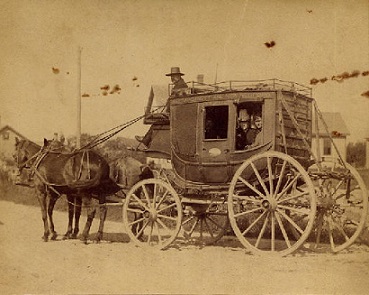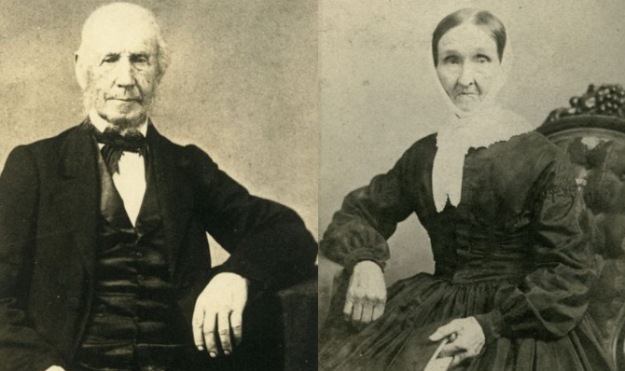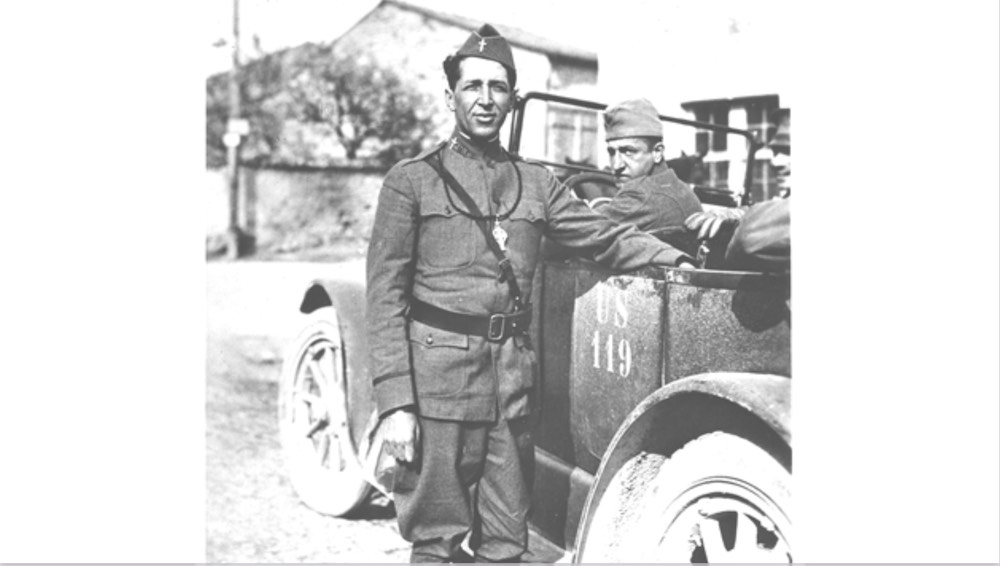Eventually, technology made it so lamps could be automatically or electrically lit, making the occupation an obsolete one. Unfortunately, with it went the small community tasks, night watchman element, and romanticism. In some parts of the world, like London, Brest, Paris, this romantic occupation carries on because these cities are proud of their history. New Bedford’s historic district of course still retains those lamps, but they are electrically lit. How about we fire half of the meter maids and take that money and bring back the Lamplighters?

Caller-Ups, Coachmen and Dirt-Carters
Another occupation that was tied in closely with the lamplighters was the Caller-Up. These fellows were the first alarm clocks. If you have come to dread the sound of your alarm clock and a habitual snooze button user, imagine have an actual person tapping a pole at your window and not going away until you sent him away! While the caller-up typically has a route whereby he tapped on windows to get everyone ready for the workday, he could come at a specific time for individuals, just like a paper route.
While today everyone has a BMW, Lexus or Toyota there was a time where horses were the primary mode of transportation. Not everyone could afford a horse, so you could call for a Coachman to taxi you anywhere you needed to go. Obviously, he was eventually replaced with the modern cab, and it is still a service used by those who can’t afford an automobile. Since horses were the primary mode of efficient travel, this meant poop. Lots of it. A horse can produce up to 30 pounds of it in a day. Horses had assistance from pigs, dogs, cows and other livestock that commuted.
It has been said that during the 18th and 19th-century manure would fill the streets a foot high in no time if there wasn’t someone to remove it. Since it simply wasn’t practical to stop to scoop it during travel it just filled the streets. If you think Rex left some “mines” imagine the size of these piles. This was to old equivalent of exhaust and equally as unhealthy! The men that scooped and removed the manure were called “dirt-carters.” Insert obligatory “crappy” job pun here. Thanks to these guys the roads were cleaner, healthier, and less dangerous to travel on.
The Iceman was another regular seen on the city streets. Before freezers and refrigerators, there was the iceman. The ice industry or frozen water trade as it was called, was a booming one in the 19th century. Indeed, it was a global one by the 1850s, and New England was a large source of ice. Many made a fortune cutting ice from ponds and lakes and using clever methods to store and transport it. Ice was cut in a variety of sized from 25-100 pound blocks and delivered by ice wagon throughout the day. While usually only the well-to-do could afford ice in their homes, meat handlers, butchers, fishmongers, and other jobs needed it to survive. This was a job that began at 4:00 a.m. to service businesses before they opened, worked until these businesses closed, and had to work seven days a week including holidays.
 New Bedford Guide Your Guide to New Bedford and South Coast, MA
New Bedford Guide Your Guide to New Bedford and South Coast, MA









I remember the typesetters using Linotype machines at the Standard-Times when I worked there in the 1970’s. It was still on Pleasant Street then. I also set pins at the Boy’s Club. They had four lanes in the basement next to the woodworking shop. You had to set pins before you could bowl. Setting was easy. Dodging the pins as they flew up was not… I can add one more, coal man. My grandparents used to have coal delivered down the chute for the stoves. They used the stoves to heat the house and cook at their place, 44 Reynolds Street.
Great stuff Len! Thanks for reading AND sharing!
one of My husband Jim Heys’ first jobs was a pinsetter at a small bowling alley on Rodney French Blvd in New Bedford
Was told when I was a baby was a man named al Deneault who would wash baby diapers and return them next day all over the city
My father was a pin setter as a boy. Another of his jobs was to blow out the gas lamps in the morning. He also worked at a livery stable, running the horses to make sure their wind was sound. As for me, I ran a switchboard one summer. It was an experience. One time I was trying to connect a call for a man who seemed to think all he needed to tell me was a person’s first name, and I’d miraculously know who he meant. He didn’t realize I could hear him when he told someone else I was stupid. Another time, I was the one who forgot that someone could hear me. I accidentally disconnected someone and swore. Fortunately the person of the line thought it was funny. Dealing with people can be, well, intersting.